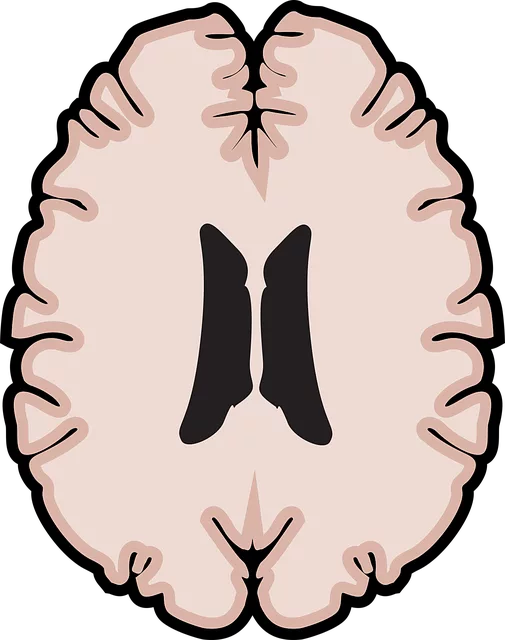Lakewood Kaiser Permanente Psychiatry implements comprehensive Crisis Intervention Team (CIT) training, empowering staff with de-escalation techniques, cultural competency, and self-care practices for effective crisis management. This team-based approach enhances patient safety, improves communication during mental health crises, and promotes holistic care, reflecting the facility's commitment to emotional well-being alongside medical treatments.
“Crisis intervention teams (CITs) play a vital role in mental health care settings, such as Lakewood Kaiser Permanente Psychiatry, where swift and effective responses can make all the difference. This article explores CIT training programs, highlighting key components for their success. We delve into the implementation and benefits of these programs, focusing on how comprehensive training enhances patient outcomes and staff confidence at Lakewood Kaiser Permanente Psychiatry and similar mental health care facilities.”
- Understanding Crisis Intervention Teams (CITs) at Lakewood Kaiser Permanente Psychiatry
- Key Components of Effective CIT Training Programs
- Implementation and Benefits: A Focus on Mental Health Care Settings
Understanding Crisis Intervention Teams (CITs) at Lakewood Kaiser Permanente Psychiatry

At Lakewood Kaiser Permanente Psychiatry, Crisis Intervention Teams (CITs) play a pivotal role in managing and responding to psychiatric crises. CITs are specialized groups of healthcare professionals who receive comprehensive training to handle sensitive situations with care and expertise. This team-based approach ensures that individuals facing mental health challenges receive immediate support tailored to their unique needs.
The program integrates self-care practices, social skills training, and healthcare provider cultural competency training, empowering the CITs to offer effective interventions. By fostering an environment of understanding and empathy, these teams are equipped to de-escalate situations, provide crisis stabilization, and facilitate access to appropriate care pathways. The expertise cultivated through such initiatives enhances the overall quality of mental health services at Lakewood Kaiser Permanente Psychiatry.
Key Components of Effective CIT Training Programs

Effective crisis intervention team (CIT) training programs are multifaceted and comprehensive, ensuring that teams are equipped to handle a range of mental health crises. At Lakewood Kaiser Permanente psychiatry, for instance, training focuses on several key components. Firstly, it emphasizes the importance of de-escalation techniques, teaching participants how to safely and calmly interact with individuals in distress. This includes learning non-verbal cues, active listening skills, and communication strategies tailored to diverse populations.
Secondly, these programs delve into the Mental Wellness Journaling Exercise Guidance, encouraging teams to document experiences and reflections. Such journaling can foster self-awareness and emotional regulation, enhancing the team’s collective ability to support individuals experiencing mental health crises. Furthermore, training incorporates Self-Care Routine Development for Better Mental Health, emphasizing the necessity of maintaining personal well-being to prevent burnout. This includes practical guidance on stress management, mindfulness practices, and healthy lifestyle habits, all vital components for sustained CIT effectiveness.
Implementation and Benefits: A Focus on Mental Health Care Settings

The implementation of crisis intervention team (CIT) training programs within mental health care settings at Lakewood Kaiser Permanente psychiatry has brought about significant benefits. These programs equip healthcare professionals with crucial skills to manage and de-escalate acute situations involving individuals experiencing mental illness, thereby enhancing patient safety. By fostering a culture of emotional regulation and empathy among staff, CIT training contributes to the reduction of stigma associated with mental illness. The training encourages open dialogue and understanding, which are vital for initiating emotional healing processes among patients.
Through regular exercises and simulations, healthcare providers at Lakewood Kaiser Permanente learn effective communication strategies to engage individuals in crisis. This not only improves patient outcomes but also fosters a supportive environment that respects the dignity of those struggling with mental health challenges. The integration of CIT training into the psychiatric setting underscores the institution’s commitment to providing holistic care, ensuring that emotional healing becomes a core aspect of treatment alongside medical interventions.
Crisis intervention team (CIT) training programs, as exemplified by initiatives at Lakewood Kaiser Permanente Psychiatry, are vital tools for enhancing mental health care. By focusing on evidence-based strategies and incorporating key components like role-playing scenarios, cultural competency training, and ongoing support, these programs empower healthcare professionals to effectively respond to crises. The implementation of CITs in settings like Lakewood Kaiser Permanente psychiatry has been shown to reduce harm, improve patient outcomes, and foster a more supportive care environment, ultimately contributing to the overall well-being of both patients and providers.






